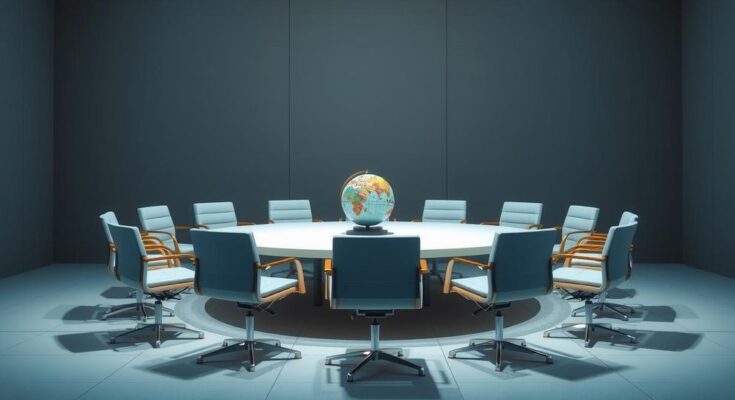The Munich Security Conference has once again excluded the Iranian government, inviting activist Masih Alinejad instead. Former crown prince Reza Pahlavi criticized this decision, highlighting its implications for Iranian representation. Alongside protests from exiled groups, discussions on Iran’s issues are expected to be prominent during the event.
The Munich Security Conference (MSC) has once again excluded the Iranian government from its panels for the third consecutive year. Instead, the conference has invited Masih Alinejad, a US-based Iranian women’s activist, to participate in several discussions. The absence of Iranian officials has raised concerns among activists who advocate for a stronger opposition to the ruling regime in Iran.
Reza Pahlavi, the former crown prince of Iran, reported that he had been invited to the conference but found himself disinvited on two occasions. Following his attendance in 2023, he accused the German government of permitting Ayatollah Ali Khamenei to exert control over the proceedings in Berlin. These circumstances have highlighted the complex dynamics surrounding the inclusion of Iranian voices at the MSC.
In a statement on social media, Pahlavi criticized the German government’s actions, emphasizing that blocking his participation represented a significant misstep historically. He expressed dismay at the decision, which he believes aims to silence the Iranian people during a transformative period in Iran’s history. Pahlavi declared that regardless of his exclusion, he would still make his way to Munich to continue rallying support for Iranian liberation.
A spokesperson from the German Foreign Ministry confirmed that while they maintained contact with the MSC, the conference itself has the autonomy to determine its own guest list. On the ground, the exiled opposition group, the National Council of Resistance of Iran (NCRI), positioned to hold a protest outside the conference venue, continues to push for change despite Tehran labeling them as a terrorist organization.
Both Pahlavi and Alinejad have been vocal about the necessity for Western nations to adopt a firmer stance against Iran, urging an end to negotiations. Although Iran’s representatives will not be present at the MSC, topics related to Iran, such as its nuclear ambitions and human rights violations, are expected to dominate discussions at various panels throughout the event.
Maryam Rajavi, the leader of the People’s Mujahedin of Iran, expressed her support for the protesters at the MSC, affirming that the Iranian regime is in its precarious final phase. She called upon the international community to align with the Iranian populace and adopt a firmer approach against the regime. Rajavi made it clear that any investment in the current leadership would ultimately prove futile, and the moment demands action in support of the quest for freedom and democracy.
The exclusion of the Iranian government from the Munich Security Conference for three years has sparked significant debate about the representation of Iranian voices in international discourse. Despite this setback, prominent Iranian activists like Reza Pahlavi and Masih Alinejad continue to advocate for a call to action against the Iranian regime. The conversation surrounding Iran’s future, focusing on human rights and geopolitics, remains critical as dissidents rally for change.
Original Source: www.jpost.com




